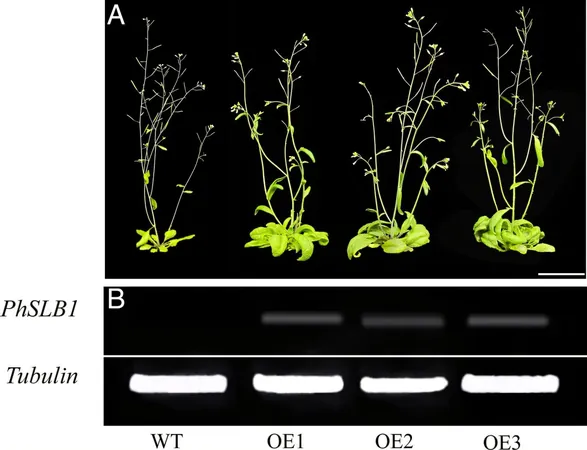
Shocking New Study Links High Hemoglobin Levels to Increased Risk of Polycystic Ovary Syndrome
2025-03-24
Author: Wei Ling
Polycystic ovary syndrome (PCOS) is a hormonal disorder that impacts an alarming 5% to 18% of women globally, leading to irregular periods, ovarian cysts, and infertility. Recent research has unveiled a surprising connection: elevated hemoglobin levels may significantly contribute to the development of this condition.
For years, the root causes of PCOS have remained largely elusive, but this groundbreaking study sheds light on the potentially pivotal role of hemoglobin—a protein crucial for oxygen transport in the blood. High hemoglobin levels are also associated with serious health problems, including diabetes and heart disease, making this discovery particularly alarming.
In a comprehensive study led by researcher Guiquan Wang from Xiamen University, over 20,600 women with an average age of 31 seeking fertility treatment were analyzed. Of these, 3,732 women (about 18%) were found to have PCOS. The results revealed a compelling association: women with higher hemoglobin levels had an increased likelihood of being diagnosed with the syndrome. Alarmingly, even hemoglobin levels that fall within the normal range (110 to 150 g/L) correlated with a higher risk of PCOS, with a staggering 22% increase in risk for every 10 g/L rise in hemoglobin. Furthermore, these women exhibited elevated levels of male hormones, including testosterone, which are known to exacerbate the condition.
To explore the potential causal relationship between hemoglobin levels and PCOS, Wang's team deployed a sophisticated statistical technique known as Mendelian randomization. This method leverages genetic variants assigned at conception to determine whether the observed association is genuinely causal. The findings were revelatory: genetically higher hemoglobin levels were confirmed to directly increase the risk of PCOS and were also linked to higher testosterone levels.
The researchers delved deeper, identifying specific gene variants associated with hemoglobin levels and uncovering biological pathways crucial to understanding their relationship with PCOS. One such pathway is linked to how cells respond to varying oxygen levels. By pinpointing key genes involved, they laid the groundwork for potential therapeutic targets.
With these insights, the team examined the activity of the implicated genes within blood and ovarian cells from women with and without PCOS. The results demonstrated that these genes were more active in women with the disorder, and their expression correlated with higher testosterone levels—a critical factor in the syndrome.
The implications of this research are profound. Wang suggests that hemoglobin levels, easily assessed through routine blood tests, could serve as an early marker for identifying women at risk of PCOS. This opens the door to proactive interventions and preventative measures that could mitigate the impact of this complex condition.
The research team also aims to further dissect the specific biological mechanisms driving PCOS, as well as explore lifestyle influences and therapeutic strategies. "It's early days, but our findings provide a compelling reason to investigate these gene targets for potential new treatments," concludes Wang.
This revelation not only provides fresh perspective on the underlying causes of PCOS but also emphasizes the importance of monitoring hemoglobin levels as a potential strategy for early diagnosis and intervention. Stay alert—this could change the way we approach women's health and reproductive disorders forever!






 Brasil (PT)
Brasil (PT)
 Canada (EN)
Canada (EN)
 Chile (ES)
Chile (ES)
 Česko (CS)
Česko (CS)
 대한민국 (KO)
대한민국 (KO)
 España (ES)
España (ES)
 France (FR)
France (FR)
 Hong Kong (EN)
Hong Kong (EN)
 Italia (IT)
Italia (IT)
 日本 (JA)
日本 (JA)
 Magyarország (HU)
Magyarország (HU)
 Norge (NO)
Norge (NO)
 Polska (PL)
Polska (PL)
 Schweiz (DE)
Schweiz (DE)
 Singapore (EN)
Singapore (EN)
 Sverige (SV)
Sverige (SV)
 Suomi (FI)
Suomi (FI)
 Türkiye (TR)
Türkiye (TR)
 الإمارات العربية المتحدة (AR)
الإمارات العربية المتحدة (AR)